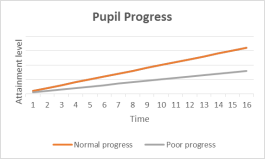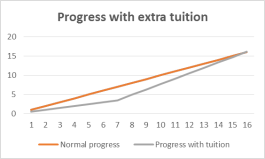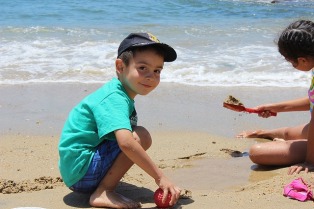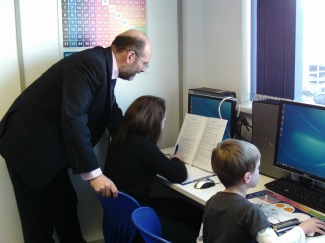 A very recent study by scientists (January 2017) has tested the principle of ‘Overlearning’ and found it to be effective. Science Daily – January 30th, 2017.
A very recent study by scientists (January 2017) has tested the principle of ‘Overlearning’ and found it to be effective. Science Daily – January 30th, 2017.
‘Overlearning’ is when something is learned and then relearned. Apparently musicians do it a lot – they learn a piece to perfection but they still practice the piece.
‘Overlearning’ is something that all good teachers recognise as useful. Unfortunately, it doesn’t happen as much as it should for two reasons:
- The curriculum is so full of content that it is difficult to find time to repeat learning.
- Lesson observations are all about the progress pupils make. It is difficult to quantify progress if a student understood something yesterday and is doing the same thing today.
So what does ‘Overlearning’ do?
Essentially it locks understanding more firmly into the mind.
A very common problem which we encounter in tutoring is forgotten information/knowledge/understanding. What we do to remedy this, or to help a child with a learning disability such as dyslexia, is to help them understand then repeat the learning (overlearn) until they do not forget it.
This has proved so successful at Kip McGrath that, from humble beginnings it is now a global business some 40 years later which has even had the ear of the Commonwealth Education Ministers.
How did the scientists prove its effectiveness?
 In the study, they took two groups which were balanced. The gave both groups the same thing to learn and tested them to assess how well it had been learned. The following day they gave one group the first learning task again; the other group had a different task. They were then tested again.
In the study, they took two groups which were balanced. The gave both groups the same thing to learn and tested them to assess how well it had been learned. The following day they gave one group the first learning task again; the other group had a different task. They were then tested again.
The group with the second task had understood it but, when tested on the first task they had forgotten it. The group who did the first task twice had improved their understanding further. For a thorough report, read the article in Science Daily linked above.
What does this mean for your child?
- Do homework
- Don’t think, ‘I’ve got it!’ and stop. It will be forgotten.
- Book a FREE assessment at Kip McGrath if they are struggling at school and are not catching up with support from school.

 DOES THE DEPARTMENT FOR EDUCATION THINKS CHILDREN’S LEARNING CAN BE PUT TOGETHER LIKE A HOUSE?
DOES THE DEPARTMENT FOR EDUCATION THINKS CHILDREN’S LEARNING CAN BE PUT TOGETHER LIKE A HOUSE?

 It was reported last month that white children are falling behind other groups at GCSE. In 2014, the gender gap at GCSE had grown to nearly 9% with the boys coming off worse.
It was reported last month that white children are falling behind other groups at GCSE. In 2014, the gender gap at GCSE had grown to nearly 9% with the boys coming off worse. education journey is entering a critical stage, at the end of which will be public exams leading to their first qualifications at the age of sixteen.
education journey is entering a critical stage, at the end of which will be public exams leading to their first qualifications at the age of sixteen. Most high schools will test their new Year 7 intake sometime after starting. Secondary education marks the beginning of a new and very important phase with GCSEs and other real qualifications at the end of it.
Most high schools will test their new Year 7 intake sometime after starting. Secondary education marks the beginning of a new and very important phase with GCSEs and other real qualifications at the end of it.
